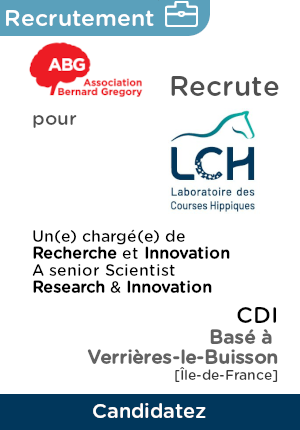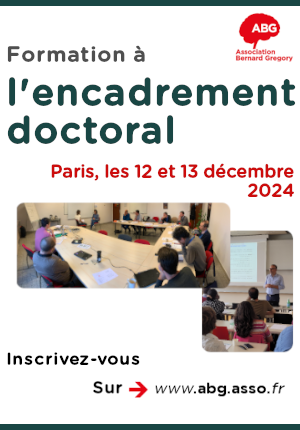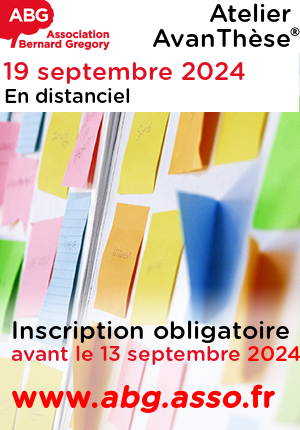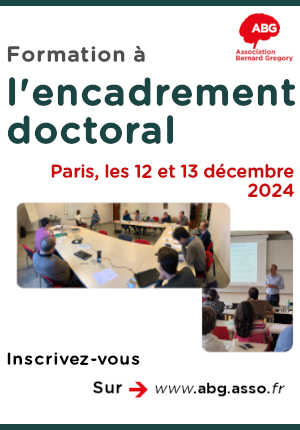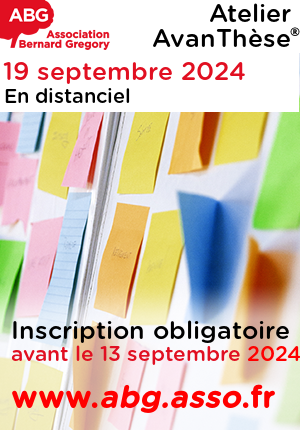PhD's voices : Mathilde Maillard, PhD candidate in materials science and entrepreneur
This summer we interviewed Mathilde Maillard, a PhD candidate in materials science and an entrepreneur from Lyon. We discussed her background, her recent mobility experience in London, as well as her (many) commitments outside of her PhD program! In this first article, she shares with us her background and her perception of the PhD experience!

My name is Mathilde Maillard and I am currently in my 3rd year of PhD, right in the middle of the final writing rush! My research revolves around the field of Materials since I am making additive manufacturing of ceramic materials for biomedical applications. In fact, I am at the interface between many disciplines such as fluid mechanics, chemistry, physics, engineering sciences, biology or mechanics. I am currently working in the MATEIS laboratory at INSA Lyon, and I also carried out a research stay in England from February to July for a collaboration between the CASC laboratory of Imperial College London and MATEIS.
I spent two years in Switzerland at the School of Criminal Sciences in Lausanne, which had been my dream since I was 14. This very demanding and original training made me discover the world of nanomaterials. When I came back to France for my third year, I decided study materials chemistry in order to learn more about the use of nanomaterials. I happened to select a Biomaterials option at the time, which finally dethroned all my other subjects. With biomaterials I could see all the possibilities of multidisciplinary careers that I could undertake. That's why I decided to do a master's degree in Biomaterials Health Engineering in Paris. This master's degree was very complete and very interesting because it allowed me to acquire knowledge in materials, biology, medicine, engineering science, but also in regulations concerning medical devices. If, as for me, multidisciplinarity is more important than expertise in a field, I can only recommend this training.

How is your work organized ?
The objectives of each PhD candidate evolve at each stage of the PhD. To simplify things, I propose a breakdown by year. In the first year: the exploratory phase of my subject. I spent a lot of time in the laboratory to get to grips with my subject, to learn the theory behind the materials I use. I conducted (and failed) many experiments. I quickly (by my second day) started experimenting and suggesting improvements. It is also important to have a phase of reading bibliographic resources, even if in my case I spent little time there at the beginning. I also had the chance to go abroad for conferences several times, in particular with the aim of presenting my work, and my first results to the scientific community. Doing a PhD is also learning to communicate in writing and orally on our subject, and to build our professional network. This is the reason why I participated in several summer schools. The network you have within European and/or national associations of PhD students in your research fields is essential. Afterwards, the pandemic stopped my experiences in the middle of my second year. The second and third year are theoretically the phase where we gain comfort in exploring our subject. Therefore, I had scheduled many manipulations over these two years. Note that at the moment (July of my third year), I am juggling between writing my manuscript and obtaining results that I should have obtained earlier.
It seems to me very important to know that it is possible to be actively involved in the life of one's laboratory, but also of one's home institutions. This is why, since my first year, I have been head of the doctoral candidates representative in my laboratory, then in my doctoral school and currently in the scientific council of INSA Lyon.
Tell us what you like and dislike about your job
The PhD is a rich activity and allows you to acquire a lot of scientific skills, but also soft skills (or transversal skills). The PhD is a unique professional and human adventure. To me, it is synonymous with intrapreneurship. It means that we own our subject. We work for ourselves under a supervisory team. When the professional environment in which we evolve is benevolent, it is very appreciable to realize that we are project leaders, in charge of a research project, and that this experience is unique because it leads to a diploma.
What I don't like is that a lot depends on us. It's very difficult to balance our social life, our mental health, our well-being, and the thesis work. We tend to put a lot of pressure on ourselves, in addition to the pressure from the professional environment (not very benevolent), or personal. Not to think about your thesis, even on vacation, is very difficult. Taking vacations, without feeling guilty (especially as the last year approaches) is also difficult. You have to juggle all these feelings and not let yourself be overwhelmed by stress, guilt, or the need to compare yourself to others. It can be a real battle against yourself.
What are the essential skills for your job?
In my opinion, there are no essential skills to start a PhD, since during the PhD, we learn a lot about ourselves, as well as about what we want to bring to society. Contrary to some preconceived ideas ("to do a PhD you have to be a nerd" and "not have a life on the side", or that "if we are not depressed we are not good students") everyone can start a PhD if they want to. I think, however, that one of the best qualities we can put forward in this activity is curiosity. On the other hand, in my opinion, team spirit and collaboration are very important because science is done by several people, and its knowledge must be shared and made available to the greatest number. Being able to build up a real network and to propose collaborations: that's how science should progress in my eyes.
What does the research experience bring to you in the accomplishment of your missions?
Research experience, especially in the midst of a pandemic, gives us the resilience needed to handle all sorts of responsibilities later on. Being a doctoral candidate is difficult. And the best possible conditions do not diminish the difficulty or the demanding nature of this adventure. Beyond resilience, the doctoral experience pushes us to put in place methodologies to achieve greater efficiency, but also to better manage time and stress. From one discipline to another, the requirements (of daily life, of writing the manuscript, or of the defense) vary, but they all have in common the fact of starting from a subject and bringing solutions to a precise problem. The knowledge and know-how (especially in terms of analytical skills, reflection and methodology) assimilated during the PhD are acquired and will remain useful whatever the path chosen after the defense. This is part of the reason why the PhD can lead to anything.

Thanks to several training courses offered at the University of Lyon's doctoral school, I was able to use computer tools to list all the scientific skills and "soft skills" acquired during my thesis. This is an exercise that we are encouraged to do and that everyone should do in order to better realize the richness of the profiles of young PhDs. This exercise is essential for the valorisation of this diploma which is still too little known and depreciated in France*.
I have taken several training courses in the field of scientific communication, including training for the MT180 competition, and of course many training courses on scientific entrepreneurship, setting up a startup, managing time and stress, changing my mindset... because I am passionate about these subjects. Thanks to the SNEE (Statut National Etudiant Entrepreneur), to the entrepreneurship center of Lyon and to Pulsalys, I have recently been guided in the exploration of the issues surrounding the protection of intellectual property, and on the possibility of launching a startup based on my research work. Beyond, once again, the network that I have been able to acquire through these different trainings and coaching, I enrich my training daily with other skills, mostly non-scientific. This is very important for me because, coming from a university background, I lacked knowledge in the fields of economics, management, business, etc.
My supervisors have always been very present and benevolent towards me. They noticed very quickly that I was not afraid to experiment with new things, nor to meet people. They always offered me to attend conferences, or to get involved (as a member of the board of the young researchers in biomaterials of France, a position I have held for almost two years). Whether it is about questions related to the conduct of my PhD, or my parallel commitments, I feel very lucky to be able to exchange with them, and to be well advised. It is important to underline that my laboratory, MATEIS, offers an optimal working environment that has allowed me to set up collaborations with other researchers, both from within and outside the laboratory.

I have had many opportunities to network, notably with my supervisors, within my laboratory, during conferences/symposia, during several summer schools, with members of young researchers' associations, but also thanks to the micro-business I set up in 2020: Bien Dans Ma Thèse (BDMT). In order to inform and contribute to the valorization of the PhD, I first launched a series of podcasts in which I interviewed PhD students but also young PhDs about their experiences. This led me to the observations that there is:
- little information about the doctorate, before entering its ecosystems;
- many clichés are conveyed.
Thus, on the first day of the first confinement, we took the initiative, with my friend Dr. Eva Petitdemange, to launch a discord open to all French-speaking PhD students. Today, we are more than 1400 people active on this totally multidisciplinary platform, which constitutes a community, a network, for its members.
The network I developed through BDMT and my doctoral project have shaped my vision of the job market, as well as of the professions that are accessible to me once I graduate. I met science mediators, science journalists, entrepreneurs, researchers from the public and private sectors, consultants... A very wide range of positions is accessible to us, it is essential to realize this. And the best way to explore this field of possibilities is to go and meet the people who work in these jobs.
As an intern, I have had various experiences, more or less pleasant. I was supervised by managers who were more or less difficult or absent. However, I also sometimes lacked the maturity to apprehend the professional world. These internships were very formative and above all allowed me to glimpse the possibility of doing a PhD, even if I admit that at the time, the reality of such a project was difficult to grasp for me.
Later, during my PhD, I had the chance to benefit from an exceptional supervision both on the human and scientific levels. However, note one essential thing: at the time I was looking for a thesis subject, I have been careful to integrate this aspect into my research criteria. To do so, I met many PhD candidates in the laboratories where I was admitted, in order to get as much information as possible about the general work atmosphere, and more particularly about my potential supervisors. This is an extremely important step in setting up a doctoral project. From my point of view, the subject must come after. I chose my thesis subject for the laboratory and the supervisory team even though it was not in my top 3 of the "sexiest" subjects.
Get ABG’s monthly newsletters including news, job offers, grants & fellowships and a selection of relevant events…
Discover our members
 TotalEnergies
TotalEnergies  MabDesign
MabDesign  ADEME
ADEME  Aérocentre, Pôle d'excellence régional
Aérocentre, Pôle d'excellence régional  Nokia Bell Labs France
Nokia Bell Labs France  SUEZ
SUEZ  ONERA - The French Aerospace Lab
ONERA - The French Aerospace Lab  MabDesign
MabDesign  Institut de Radioprotection et de Sureté Nucléaire - IRSN - Siège
Institut de Radioprotection et de Sureté Nucléaire - IRSN - Siège  CESI
CESI  Groupe AFNOR - Association française de normalisation
Groupe AFNOR - Association française de normalisation  Tecknowmetrix
Tecknowmetrix  CASDEN
CASDEN  Institut Sup'biotech de Paris
Institut Sup'biotech de Paris  Ifremer
Ifremer  Généthon
Généthon  Laboratoire National de Métrologie et d'Essais - LNE
Laboratoire National de Métrologie et d'Essais - LNE  PhDOOC
PhDOOC  ANRT
ANRT
-
Thesis topicRef. ABG124643EDF- Occitanie - France

Thèse CIFRE sur l'analyse en temps réel des conséquences thermomécaniques du soudage sur les tuyauteries F/H
Engineering sciences - Materials science -
Thesis topicRef. ABG124980École Polytechnique de MontréalMontréal - Canada

Advanced characterization of abradable coating wear phenomena during blade-tip/casing contacts in aircraft engines
Engineering sciences -
JobPermanentRef. ABG123642Laboratoire des Courses Hippiques (GIE LCH)- Ile-de-France - France
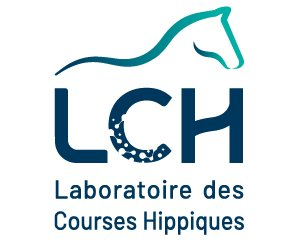
Chargé(e) de Recherche et Innovation (H/F) / Senior Scientist Research & Innovation (M/F)
Chemistry - BiochemistryConfirmed

